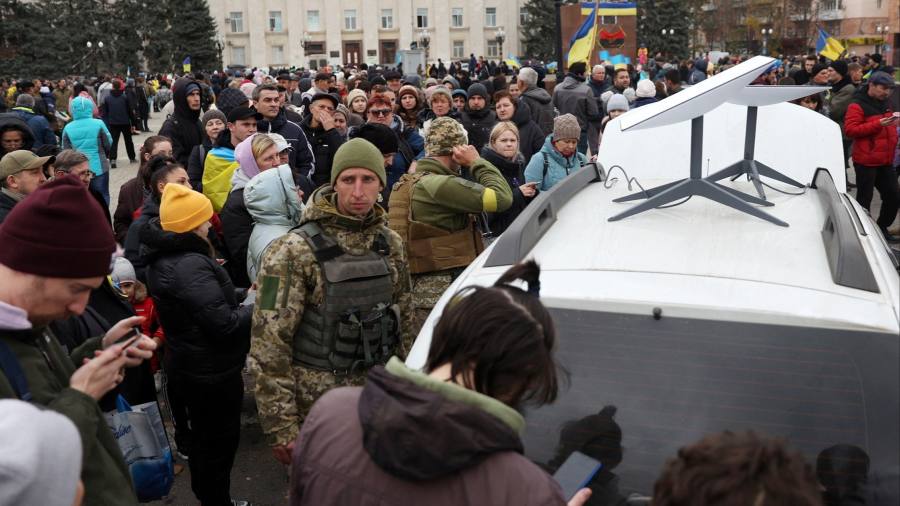Elon Musk’s SpaceX has secured US funding to provide satellite internet to the Ukrainian military, as its founder abandoned his stated doubts over how his company’s terminals were being deployed in a major conflict.
The Department of Defense has agreed to buy Starlink terminals from Musk but has not disclosed the quantities it will purchase, or how much it is paying for the service.
Musk had earlier complained SpaceX was making too little money from the various contracts that have seen at least 20,000 terminals being used for a mix of civilian, humanitarian and military purposes.
While the total number of terminals is unknown, hundreds are destroyed each month in the fighting and need replacing. SpaceX is expected to be paid out of the Ukraine Security Assistance Initiative, which has financed the procurement of weapons and training to modernise the Ukrainian military as it battles the Russian army.
“Satellite communications constitute a vital layer in Ukraine’s overall communications network and the department contracts with Starlink for services of this type,” the Pentagon said in a statement on Thursday.
Musk enabled access to SpaceX’s low-orbit satellites within Ukraine in late February 2022 in response to a public plea by a Ukrainian minister. But he has since expressed reticence about the cost and complexity of continuing service.
Since the war began, an mix of terminals has flowed into the country, including some donated by SpaceX, purchased by Ukraine’s allies, such as Poland and the UK, and others crowdfunded by supporters. People familiar with those contracts said the pricing depended on various factors, including whether the terminals were intended for civilian or military use.
The units, which connect a small antenna to a 35cm-high terminal, have allowed the Ukrainian military to run data-intensive drone surveillance and maintain communications along a front line. They also provide internet to civilians in newly liberated parts of the country where telecom services may have been destroyed.
But Musk has made clear to his Twitter followers that he worried about the role that his terminals had in the conflict. In October, some soldiers at the front line reported “catastrophic” outages in connectivity, especially as they pushed back Russian forces in the south and east of the country, the Financial Times reported.
The Pentagon did not release any additional information about the contract, which had been under discussions since as early as October. In response to a request from Ukraine’s minister of defence for about 8,000 terminals, Musk had asked the Pentagon to provide financial support, CNN reported at the time.
Read the full article here




